How Pope Francis's visit helped 2 generations of a Cree family heal
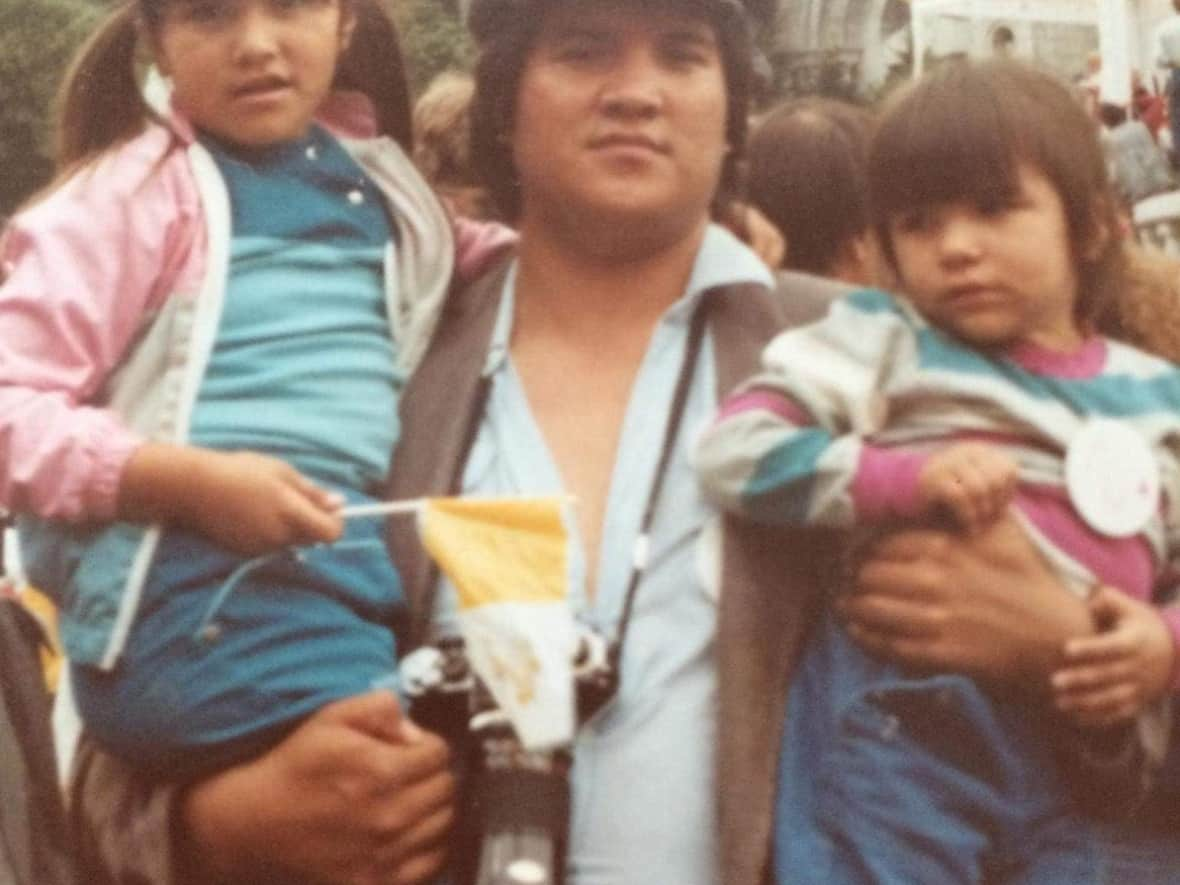
A Naskapi-Cree woman and her father, who each saw Pope Francis in two different parts of the country during his weeklong trip to Canada, say his visit played a significant role in helping them heal the scars left on their family by residential schools.
On Monday, Sandy Robinson attended the pontiff's apology in Maskwacis, Alta. On Thursday, it was his daughter's turn. Glenda Sandy was outside the Sainte-Anne-de-Beaupré Basilica in Quebec with one of her sons, while her mother was inside to see the Pope lead a mass.
For Sandy, who lives in Quebec City now but hails from Kawawachikamach in northern Quebec, the moment was "very historic," and the fact that so many members of her family had participated in it was "like coming full circle" on "this path towards reconciliation, towards healing."
That healing is part of a long process, the two say, helped along by events like the pontiff's visit — and a remarkable discovery earlier this year.
Robinson, who is Pimicikamak Cree from Cross Lake, Man., is one of the people who led the ground-penetrating radar searches at the site of St. Joseph's residential school in the north of the province.
A few months ago, he came to Montreal and, accompanied by his daughter Glenda and her two sons, began sifting through the records of the Missionary Oblates of Mary Immaculate.
As they reached the photographs, the very first image they came across was of Robinson's father, Baptiste Robinson, when he was in residential school. He was seven years old at the time.
Robinson said it felt like the moment was "created by the Creator" and "was meant to happen."
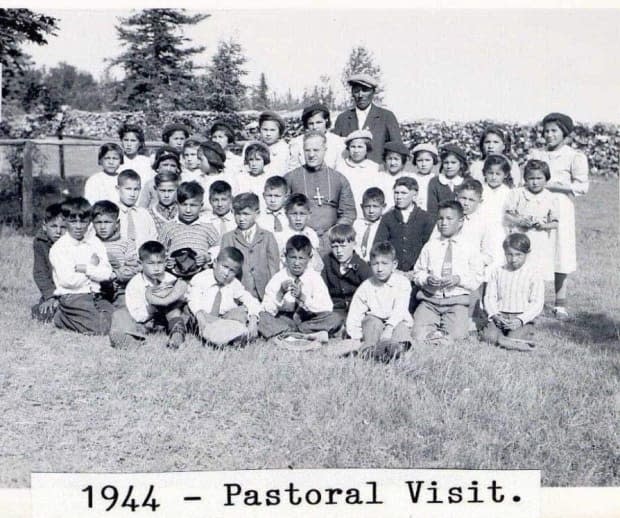
"I showed that to my grandsons and said 'look at this, this is your great-grandpa here,'" said Robinson. "It was a good moment, with my first daughter present at the same time."
"It just sort of connected us, I think, on a very deeper level and just in terms of where we were in our relationship and how we were trying to move forward," said his daughter.
It was, she said, "a really, very profound moment for all of us."
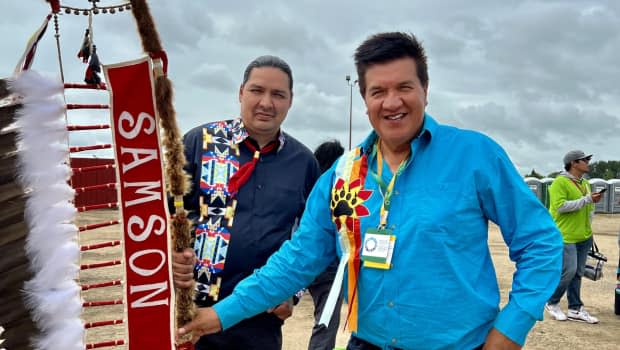
Robinson said sitting there and listening to the Pope ask for forgiveness for the harm done by clergy members to Indigenous people was a spiritual — and emotional — moment for him.
"I could feel my energy just getting positive and positive," he said. "At the end of it, I actually cheered up."
He recalls thinking: "I waited over 60 years and it's happening at this very moment."
Being part of what he considers a historical moment, allowed him to leave "feeling light and feeling good."
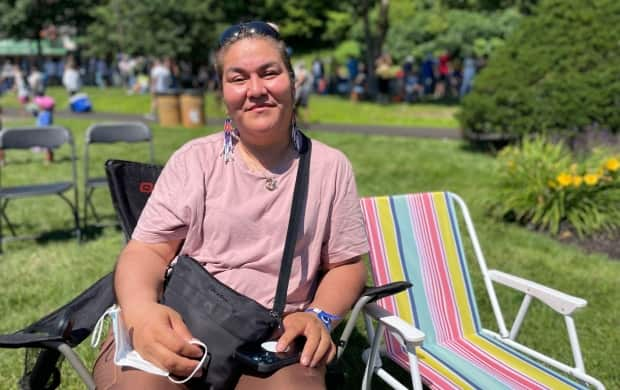
Sandy says she knows the Pope's visit hasn't satisfied everyone.
"But for me personally, I think it's a step in the right direction and I'm very happy to have been able to witness this."
'A new man'
On his way to Banff, Alta., Thursday, Robinson stopped at Bow Lake in the Rockies. He held two pine cones he had picked up in Saskatchewan a month earlier, tossed them into the water and watched them float away.
"It was like a release of the pain I knew my parents had carried with them before, while they were with us," he said. "It was for me, like letting go of the pain as well."
Robinson's parents are both residential school survivors. He said his whole family has suffered from intergenerational trauma as a result.
For a man who grew up Roman Catholic, he said the discovery of unmarked graves at the sites of several former residential schools last summer shifted his perception of the Church and he stopped being religious for some time.
But he said after attending Pope Francis's mass in Lac Ste. Anne, Alta., on Tuesday, his faith was renewed. Now, he looks forward to participating in his church again.
Robinson said he "feels much lighter" and will return to Cross Lake as "a new man." He said he looks forward to spending the rest of his time focusing on the bright side of life.
"This darkness has been removed — just like that."
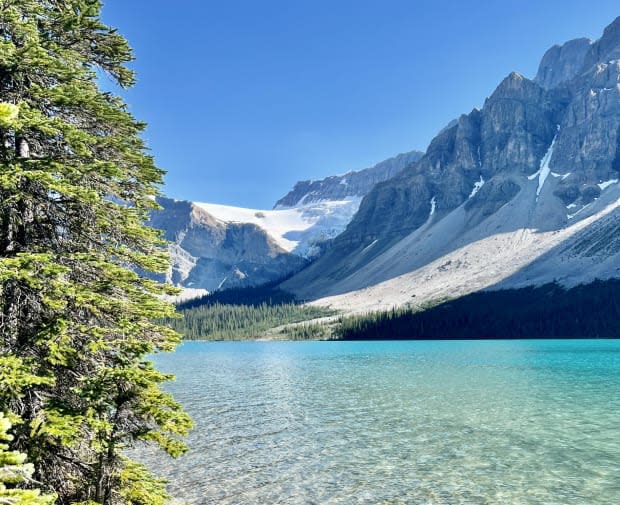
Healing carries on with next generation
One of Robinson's grandsons is now leading the ground-penetrating radar searches in Cross-Lake, continuing the family's healing journey.
As for Sandy, she said it is important for her to respect her children's pace as they navigate their own paths on that journey.
"I'm hoping that I've started to break the cycle of that intergenerational trauma," she said.
"Letting my kids, the next generation, decide on their own what's best for them without pushing them, I think is for me part of that progress."
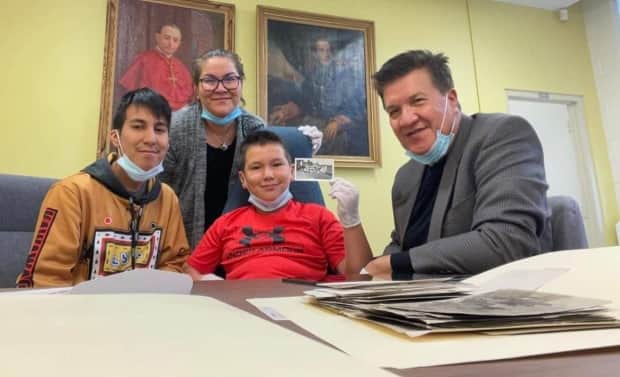
Now what's needed, Sandy said, is more concrete action from the Church and collaboration with Indigenous communities on different healing initiatives.
The papal visit "was an important gesture, but I think there has to be an action that follows it."
Support is available for anyone affected by their experience at residential schools or by the latest reports.
A national Indian Residential School Crisis Line has been set up to provide support for former students and those affected. People can access emotional and crisis referral services by calling the 24-hour national crisis line: 1-866-925-4419.
Mental health counselling and crisis support is also available 24 hours a day, seven days a week through the Hope for Wellness hotline at 1-855-242-3310 or by online chat at www.hopeforwellness.ca.


